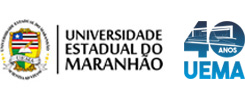Use este identificador para citar ou linkar para este item:
https://repositorio.uema.br/jspui/handle/123456789/3777| Título: | Conflitos de dois mundos: uma análise comparativa entre a pintura A Queda dos Anjos Rebeldes, de Pieter Bruegel (1562) com a obra Demian, de Hermann Hesse |
| Título(s) alternativo(s): | Conflicts of two worlds: a comparative analysis between the painting The Fall of the Rebel Angels, by Pieter Bruegel (1562) and the work Demian, by Hermann Hesse |
| Autor(es): | Passos, Emanuelly Aguiar |
| Orientador: | Mascarenhas, Vilma Rodrigues |
| Membro da Banca: | Mascarenhas, Vilma Rodrigues |
| Membro da Banca: | Morais, Solange Santana Guimarães |
| Membro da Banca: | Sousa, Elizeu Arruda de |
| Data do documento: | 2024-08-19 |
| Editor: | Universidade Estadual do Maranhão |
| Resumo: | A literatura e a pintura podem ser consideradas duas formas de expressão, que podem dialogar entre si. Mesmo cada uma possuindo suas particularidades, elas podem manter uma relação que permite a investigação de temáticas, de simbologias, que acabam por se coincidir. Este presente trabalho analisa o conflito entre o sagrado e o profano nas obras A Queda dos Anjos Rebeldes (1562), de Pieter Bruegel e Demian (1919), de Hermann Hesse. Nesse caso, a análise comparativa dessas obras revela como o conflito entre o sagrado e o profano, que é representado de maneira que os dois mundos podem oferecer uma compreensão das questões espirituais e existenciais que permeiam a condição humana. O objetivo do trabalho é analisar as coincidências encontradas entre a expressão visual de Bruegel e o romance de formação de Hesse, com o intuito de comparar a relação entre o sagrado e o profano nas obras. Para analisar os pontos de contato, o estudo teve como aporte teórico Wilma Maas (2000), Mircea Eliade (1992), Gombrich (1995), Carvalhal (2006), Nitrini (2000), Soethe (2009), Wellek (1997), Koerner (2016), Muhlberger (1993), como também outros autores com contribuições nas áreas de estudo desta pesquisa. Dessa forma, a comparação entre literatura e pintura, como demonstrado pelos estudos dos autores, revela a profundidade das interações entre essas duas formas de arte |
| Resumo: | Literature and painting can be considered two forms of expression that can interact with each other. Even though each has its own particularities, they can maintain a relationship that allows the investigation of themes and symbols that end up coinciding. This present work analyzes the conflict between the sacred and the profane in the works The Fall of the Rebel Angels (1562), by Pieter Bruegel, and Demian (1919), by Hermann Hesse. In this case, the comparative analysis of these works reveals how the conflict between the sacred and the profane, which is represented in such a way that the two worlds can offer an understanding of the spiritual and existential questions that permeate the human condition. The objective of the work is to analyze the coincidences found between Bruegel's visual expression and Hesse's coming-of-age novel, with the aim of comparing the relationship between the sacred and the profane in the works. To analyze the points of contact, the study used theoretical input from Wilma Maas (2000), Mircea Eliade (1992), Gombrich (1995), Carvalhal (2006), Nitrini (2000), Soethe (2009), Wellek (1997), Koerner (2016), Muhlberger (1993), as well as other authors with contributions in the areas of study of this research. Thus, the comparison between literature and painting, as demonstrated by the authors' studies, reveals the depth of the interactions between these two art forms |
| Palavras-chave: | Literatura Pintura Comparação Obra A Queda dos Anjos Rebeldes Diálogo entre literatura e pintura Percurso dos estudos comparados Arte, Literatura e Intertextualidade Literature Painting Comparison Work The Fall of the Rebel Angels Dialogue between literature and painting Path of comparative studies Art, Literature and Intertextuality |
| Aparece nas coleções: | Curso de Licenciatura em Letras Licenciatura em Língua Portuguesa, Língua Inglesa e Literaturas - Caxias UEMA - Monografias |
Arquivos associados a este item:
| Arquivo | Descrição | Tamanho | Formato | |
|---|---|---|---|---|
| MONOGRAFIA - EMANUELLY AGUIAR PASSOS - CURSO DE LICENCIATURA EM LETRAS LÍNGUA PORTUGUESA, LÍNGUA INGLESA E LITERATURAS CAXIAS UEMA 2024.pdf | PDFA | 1.14 MB | Adobe PDF | Visualizar/Abrir |
Os itens no repositório estão protegidos por copyright, com todos os direitos reservados, salvo quando é indicado o contrário.
